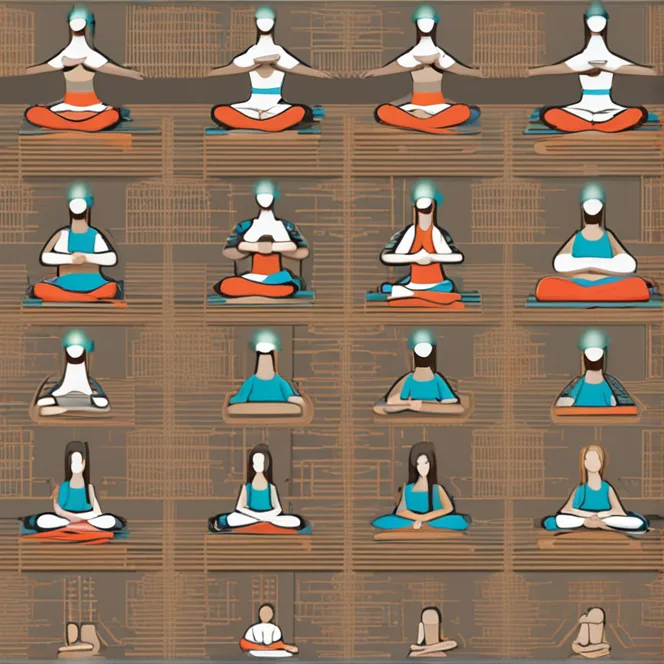
The Difference Between Meditation & Mindfulness
Explore the distinct features of meditation and mindfulness to comprehend their unique benefits and roles in enhancing well-being.
article by Hina Kurosawa
Defining Meditation and Mindfulness
Meditation is a traditional practice that spans thousands of years and countless cultures, often associated with spiritual growth, relaxation, and stress reduction. It involves intentional setting aside of time to focus one's mind, which can be guided by breathing, mantras, or imagery. Mindfulness, on the other hand, is a quality or state of being that can be cultivated within any moment of life. It centers on being fully aware and present in one's experience without judgment. While mindfulness can be practiced through meditation, it also extends to everyday activities and interactions, emphasizing an open, attentive, and discerning awareness.
Different Aims and Outcomes
The objectives of meditation and mindfulness, though overlapping, diverge in their scope. Meditation seeks to foster a deeper state of peace, insight, and often spiritual connection. Its outcomes can range from enhanced calmness and emotional balance to profound personal transformations and heightened consciousness. Mindfulness, while also alleviating stress and fostering emotional regulation, primarily aims at developing a nonreactive awareness to thoughts and sensations, allowing individuals to respond to life's challenges with equanimity. By making mindfulness a habit, one learns to remain centered and composed in the face of life's constant flux.

Varieties of Meditation
Meditation encompasses a vast array of techniques. There are concentrative meditations, which focus the mind on a single point, and contemplative meditations, which engage the mind in reflective thought or visualization. There are also movement-based meditations, such as yoga and tai chi, which align the body, breath, and mind. In contrast, mindfulness is a singular approach that applies to any and all activities, encouraging a continuous, encompassing awareness, rather than a focus on a singular task or object.

Mindfulness as Meditation's Component
While they are distinct practices, mindfulness is often a component within meditation. Many meditation techniques employ mindfulness to stabilize the mind and keep it engaged on the intended focus. Mindfulness meditation, a popular style originating from Buddhist traditions, is a clear example where the two intersect. In this practice, the meditator maintains attentive observation of their breath, thoughts, feelings, and sensations as they arise, fostering both a meditative state and a mindful approach to experiencing reality.

Incorporating into Daily Life
Mindfulness can be seamlessly woven into daily life and is perhaps best understood as an attitude applied to each area of one's experience. While meditation is generally practiced during dedicated times in a quiet space, mindfulness is the conscious check-in with the present moment, whether one is eating, conversing, working, or simply resting. This pervasive practice strengthens the ability to remain in the now, reducing ruminative thoughts and anxiety about past or future events.
Enhancing Well-being Together
Both meditation and mindfulness hold significant value for mental and emotional well-being. They are complementary practices; meditation can enhance the depth of mindfulness, and mindfulness can expand the benefits of meditation into every waking moment. By incorporating both into one's lifestyle, an individual may experience an increase in stress resilience, and improved focus and clarity of thought. Moreover, with sustained practice, both can lead to greater empathy, compassion, and emotional intelligence.
Published: 12/4/2023
Modified: 12/4/2023
More predictions
Come back here soon to learn more about yourself and your future


The Evolution of Meditation Practices
In the realm of astrology, Saturn, often referred to as the taskmaster of the zodiac, plays a unique and profound role in shaping our approach to love and relationships. While often associated with challenges and obstacles, Saturn's influence on our love lives can be seen as a powerful teacher, guiding us toward the creation of enduring and meaningful connections. This article explores Saturn's lessons in love, offering insights into how this celestial force can help us build lasting and fulfilling bonds.


Meditation For Sleep
In today's fast-paced world, the struggle with insomnia is increasingly common. The inability to fall asleep or stay asleep can take a toll on one's physical and mental well-being. While there are various remedies available, meditation offers a holistic and effective approach to address the root causes of sleeplessness. In this article, we will explore meditation techniques tailored specifically for insomnia and how they can help you achieve a restful night's sleep.


Meditation & Psychotherapy
In recent years, there has been a growing recognition of the profound synergy between meditation and psychotherapy in promoting mental health and well-being. These two disciplines, while distinct in their approaches, share a common goal: to alleviate suffering and enhance the human experience. In this article, we will explore the intersection of meditation and psychotherapy, examining how their integration can offer transformative benefits for individuals seeking personal growth, healing, and self-discovery.